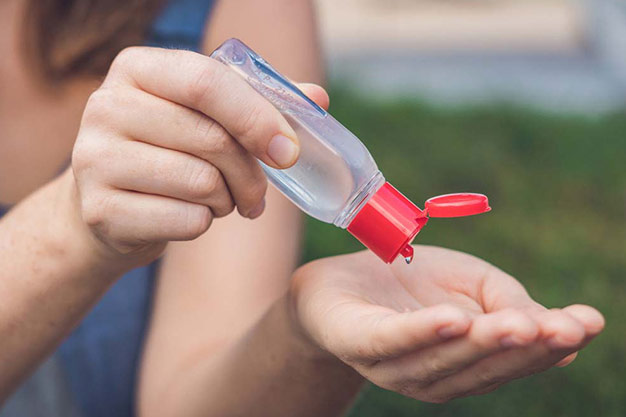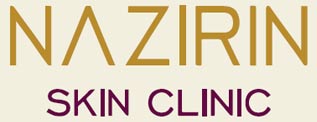
General Hygiene
Hand washing is one of the most powerful ways to slow the spread of infectious diseases.
As the coronavirus that causes COVID-19 continues to spread globally, health officials have emphasized that washing one’s hands regularly and properly is one of the most effective ways to prevent the spread of infection.
Guidance from WHO says that we should scrub and wash our hands for at least 20 seconds to effectively curb the spread of germs. Alcohol-based hand sanitizers that contain at least 60% alcohol can also be used to rid your hands of germs, though they are not as effective as soap and water at removing visible dirt or harmful chemicals. Sanitizers also do not get rid of all germ types and that is why we should continue washing our hands as part of our heightened hygiene measures during this dangerous period.
However, for individuals with particularly dry skin or skin conditions, such as eczema or psoriasis, excessive hand washing can result in skin damage and sore hands. Even for individuals with healthy skin, overuse of soaps and hand sanitizers can cause the skin to dry out and crack.
Repetitive use of hand sanitizers and hand washing can strip the proteins in the epidermis (top skin layer), leading to a compromise of the skin barrier and, therefore, the risk of infection. Additionally, soaps can give rise to irritant hand dermatitis, which presents as dry, flaky, itchy red skin, particularly in the finger web spaces and on the knuckles
Why frequent washing and sanitizing can cause dry skin
Soap and water rinses away germs and dirt, but also strips the natural, protective oils in your skin, causing it to dry out, according to Dr. Nazirin. “And with increase frequent washing, our hands get dry, cracked and raw.” Cracks that form on skin can increase your risk of contracting infections through the fissures and also lead to conditions such as eczema.
Alcohol-based hand sanitizers, which kill the microbes on skin without removing any debris, irritate hands less than soap, according to Dr Nazirin. She suggests using hand sanitizers when it makes the most sense, like after touching a door handle or another surface that might carry germs.
However Dr. Nazirin says taking preventative measures need to combine washing hands for at least 20 seconds and then applying hand sanitizer of at least 70% alcohol is the best.
Overall, Dr.Nazirin recommends the following:
- Wash with soap or with moisturizer and water, then moisturize.
- Use an alcohol-based hand gel and then moisturize afterward. Moisturizing at the same time might compromise the anti-microbial properties of the cleanser.
Gloves and Vaseline can help with heavy washing and cracks
In addition to making a routine out of using hand cream after washing your hands, a humidifier can help keep the air — and in turn, your skin— moist.
Dr Nazirin whose family members suffer from eczema, says that people with chronic conditions that cause dry skin must take steps to avoid cracked skin. She says that people whose skin is sensitive to harsh chemicals should handle cleaning supplies, like Clorox wipes, while wearing gloves.
Dr Nazirin recommends applying thick hand creams or Vaseline after washing hands and especially before going to bed.
“Nighttime is a really good time to give your skin a rest. Put on a really thick cream and if you can, put on a pair of cotton gloves,” she says. “If you can tolerate that for a few hours before bed, or even overnight, that utilizes all that downtime to hydrate the skin to get it back into gear.”
How to keep your hands clean and moisturized
Once you’ve washed your hands for at least 20 seconds, Dr Nazirin suggests patting them dry rather than rubbing them, which can irritate the skin.
“You want to pat yourself dry and leave a small amount of dampness, and then moisturize to lock in the water,” she says.
Once your hands are dry, immediately use a hand cream to seal in the moisture. Ideal hand creams should not include irritants, such as retinol or other anti-aging serums, allergens or fragrances, DrNazirin says.
Hand soap should also be gentle and fragrance-free, Stevenson adds. “You don’t want to use something that’s meant to clean the pasta sauce off your bowl,” she says.
Among the many kinds of moisturizers, hand creams are better than body lotion because they are more nourishing. Lotions, which are primarily water-based, can further dry out skin because the water evaporates. Creams, which are often oil-based, are more effective after washing hands. “It’s got what we’d want to add back into the skin,” Dr Nazirin says. “Lotion is fine in many instances, but not when it comes to protecting our hands.”
Dr Nazirin says using hand cream after washing your hands is a safe and clean way to prevent dry skin. She also recommends people carry their own personal tubes sanitizer and moisturizer to avoid spreading germs by sharing with others.
Q&A for Eczema sufferer
Are there certain types of soaps people with eczema should avoid? Should they avoid hand sanitizer too?
Many of the antiseptic washes and antibacterial washes are quite harsh on the skin. In general, the antiseptic ingredients are not needed for proper hand hygiene if you use proper technique, (i.e., wash with soap for 20 seconds, use warm water, etc.).
But, under the circumstances of the current outbreaks, you may only have access to some of the harsh antiseptic washes. As such, the pros of proper hygiene and prevention of disease transmission outweigh the cons of irritation from such products. But, applying moisturizer after each wash can reduce much of the drying effects.
What are the steps people with eczema should take to properly moisturize after washing their hands?
After washing your hands, you should pat dry with a disposable paper towel or tissue. It is best not to rub dry as this is traumatic to the skin aside from the harm of frequent water exposure. Once mostly dry, (i.e., your skin is still a little damp) apply a generous amount of moisturizer to coat the entire surface of your hands and fingers.
The choice of moisturizer largely depends on your preference and what is practical for daytime use and carrying out activities of daily living.
Some people wear disposable gloves and use hand sanitizer on those gloves. This used to affect the integrity of latex gloves. Is this the case for nitrile or vinyl gloves? Is this a valid and effective way for people with eczema to protect themselves while avoiding flare-ups?
When we apply hand sanitizer on our bare skin, we can feel if we covered the entire surface of the hands and fingers. But, when wearing gloves, we limit the ability to feel this and might miss some spots on the gloves and then accidentally carry some germs. It makes the most sense to either change gloves and/or wash or sanitize hands often, rather than to wash or sanitize gloves.
What should people with eczema do while cleaning to protect their skin while working to prevent the spread of respiratory illness?
People should always wear gloves when using antiseptic wipes and cleaning products. These can be very harsh upon contact with your skin.
If the hands of a person with eczema do become dry and cracked, should they call their doctor? How should they treat it to avoid infection?
Good integrity of the skin barrier is an important aspect of hand hygiene. People who are prone to having hand eczema or atopic dermatitis flare-ups from using harsh soaps or frequent hand-washing should be proactive and apply moisturizers to help maintain the skin barrier and prevent eczema flare-ups. But, if that is not enough, they may need prescription topical therapy to reduce the inflammation in eczema.
Should people with hand eczema carry travel bottles of the soap and moisturizer that works best for them so they can wash their hands in public?
Dr Nazirin often recommend this to patients who are sensitive to different products. But, in this outbreak scenario, there are two more considerations. First, it is important that people properly clean their hands before applying moisturizer in order to prevent contamination of their products with harmful germs.
Second, it is important that people also clean and/or sterilize the outside of the containers they are using to carry around soaps and moisturizers. Otherwise, they run the risk that these tubes may carry harmful germs on their surfaces.
If the hands of a person with eczema do become dry and cracked, should they call their doctor? How should they treat it to avoid infection?
Good integrity of the skin barrier is an important aspect of hand hygiene. People who are prone to having hand eczema or atopic dermatitis flare-ups from using harsh soaps or frequent hand-washing should be proactive and apply moisturizers to help maintain the skin barrier and prevent eczema flare-ups. But, if that is not enough, they may need prescription topical therapy to reduce the inflammation in eczema.


